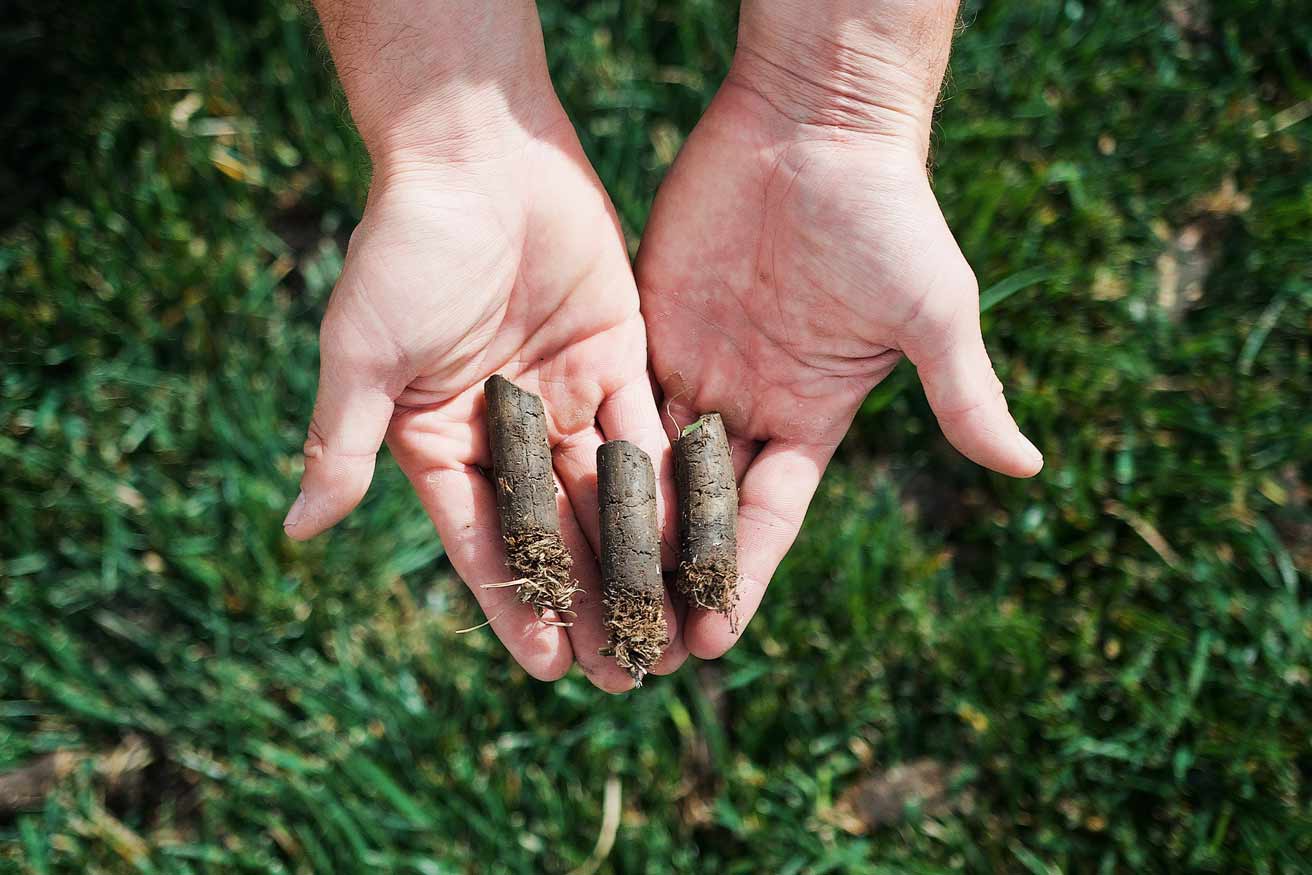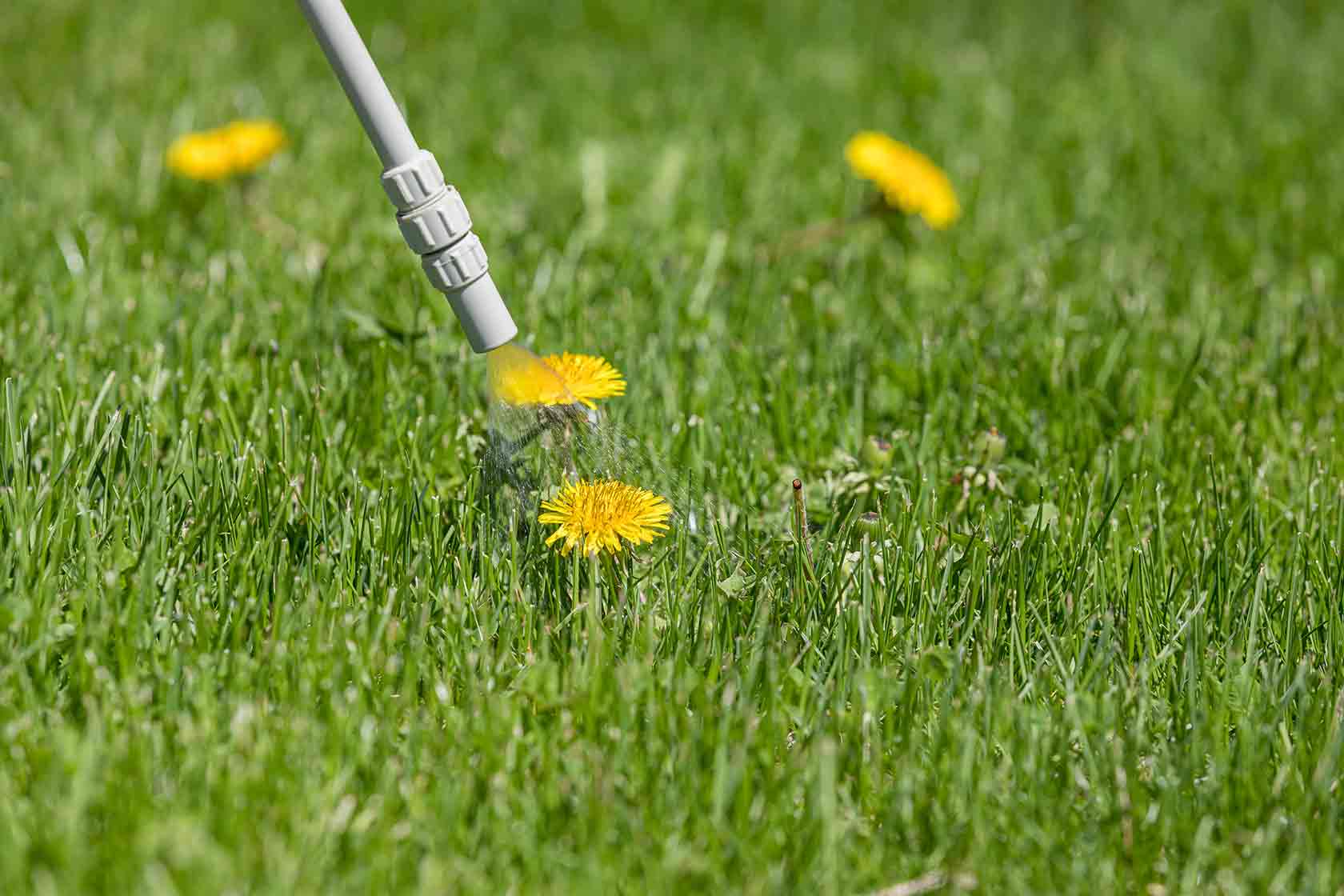Last Updated:
December 15, 2025
After months of cold, snow, and dormancy, your grass, garden beds, and plants are all ready to wake up and start growing again. But without proper early-season attention, winter damage can hold back that new growth.
If you want your yard to look healthy all year long, these spring yard care tips will help you prepare every corner of your property for success.

Before you jump into mowing or planting, it’s important to clear away the remnants of winter. Fallen branches, matted leaves, and leftover debris can block sunlight, trap moisture, and invite mold or pests. A thorough spring cleanup sets the foundation for a healthy growing season across your lawn, flower beds, and garden areas.
Use a flexible rake to lift dead grass and leaves from your lawn, trim back any damaged shrubs, and edge around garden beds to define their shape. Clean out flower beds by removing old mulch and plant matter to give new growth room to emerge.

Lincoln’s heavy clay soils can become dense and compacted over the winter, making it difficult for roots to access air and water. Core aeration, where small plugs of soil are removed, releases that pressure and helps your grass, trees, and shrubs grow stronger.
After aerating your lawn, take time to refresh your garden and flower beds. Loosen compacted soil with a hand cultivator and mix in compost or organic matter to improve texture and nutrient content. Healthy soil structure supports stronger roots, better drainage, and more vigorous plants.

Everything in your yard needs proper nutrition to thrive in spring. Cool-season grasses common in Lincoln, like Kentucky bluegrass, tall fescue, and perennial ryegrass, respond well to a light spring feeding. Use a slow-release fertilizer with a balanced nutrient ratio (around 20-10-10) to promote strong root growth and vibrant green color.
Don’t forget your shrubs, trees, and perennials. Many landscape plants benefit from a spring feeding with a gentle, slow-release formula that supports leaf and flower development. Always follow label directions and avoid over-fertilizing, which can lead to excessive top growth and weak roots.

Weeds don’t just affect lawns; they can invade mulch beds, garden edges, and walkways too. Lincoln’s spring weather brings ideal germination conditions for crabgrass, dandelions, and foxtail, so applying a pre-emergent herbicide early is key to prevention.
For flower beds and gardens, use a natural pre-emergent like corn gluten meal or apply fresh mulch to smother weed seeds before they sprout. In lawns, apply a combination fertilizer and pre-emergent product between late March and mid-April for season-long protection.

Your first mowing of the season sets the tone for your yard’s appearance. Start by sharpening mower blades and trimming tools to ensure clean cuts. Set your mower height to remove no more than one-third of the grass blade, around 3–4 inches for tall fescue and 2.5–3.5 inches for bluegrass.
After mowing, use a string trimmer to tidy up around fences, flower beds, and hardscapes. Lightly edge sidewalks and driveways for a polished look. These simple details make a big difference in your yard’s overall neatness and curb appeal.
.jpg)
Spring in Lincoln often starts wet, but dry spells can arrive quickly as temperatures climb. Overwatering early in the season can promote shallow roots and disease, while too little moisture can stunt new growth. The balance is to water deeply but infrequently.
Lawns and landscape plants generally need about 1 inch of water per week, including rainfall. Water early in the morning so the soil has time to absorb moisture before evaporation increases. Deep watering encourages stronger root systems in both turf and garden plants, improving resilience for summer heat.

Once the lawn is growing and your soil is prepped, shift your attention to flower and garden beds. Remove old mulch, mix in fresh compost, and prune back dead stems from perennials. Spring is also the perfect time to divide crowded plants or install new shrubs and annuals for color and texture.
Adding a 2–3 inch layer of fresh mulch helps lock in moisture, prevent weeds, and give your yard a clean, finished look. Choose natural mulch types like shredded hardwood or pine bark, which break down slowly and enrich the soil over time.
Bed rejuvenation checklist:
Spring yard care in Lincoln requires a full-property approach to soil health, weed prevention, plant care, and long-term landscape maintenance. Managing it all on your own can be time-consuming, but with help from Summit Lawns, it doesn’t have to be.
Our team provides comprehensive yard care services designed for Lincoln homeowners. Call us today to get a free quote on any of our lawn care and landscaping services!